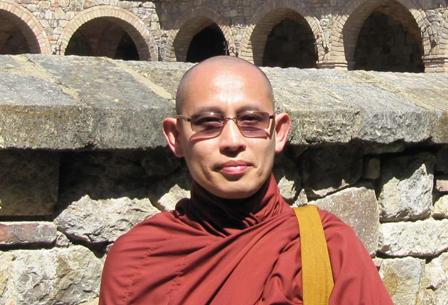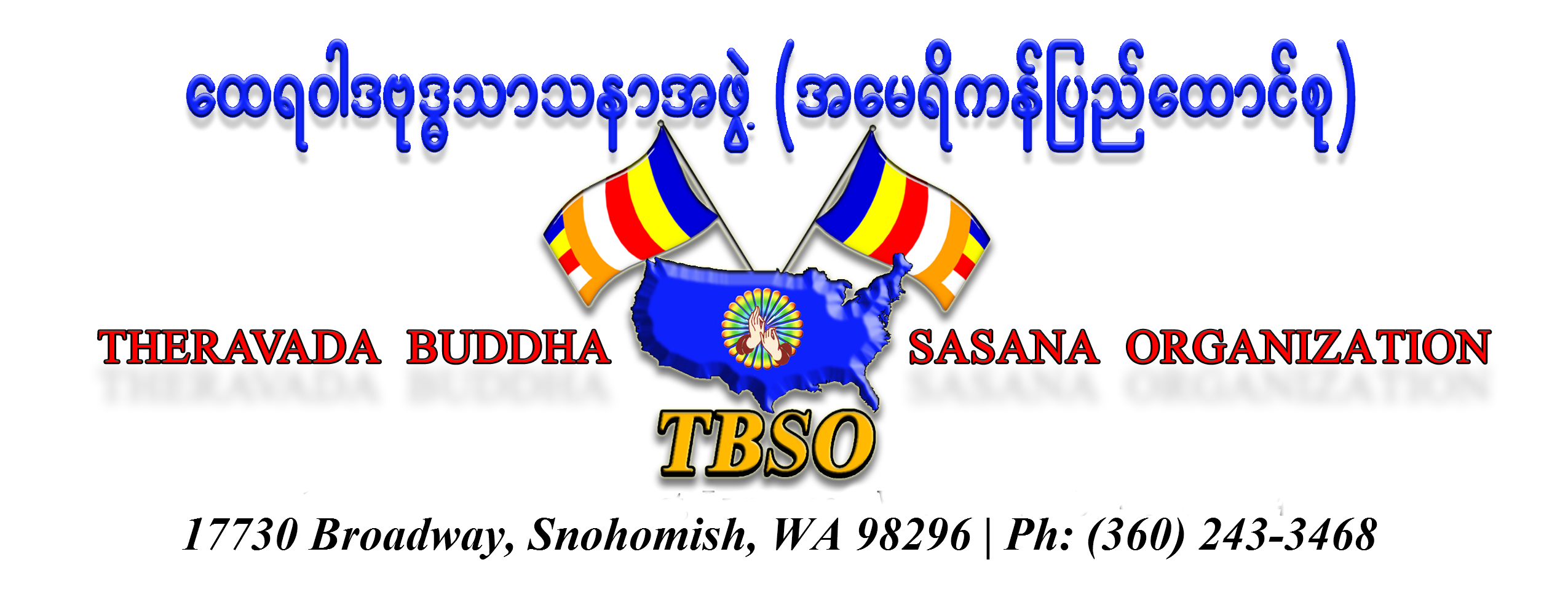Sanghas
Biography of Venerable Ashin Pannobhasa

Venerable Ashin Pannobhasa was born in April 1966 Thursday (2nd Waning day of Kason 1328 Myanmar Era) in Pyapon, Irrawaddy Division. After finishing his Mechanical Engineering degree from Yangon (Rangoon) Institute of Technology he received higher ordination as a Bhikkhu or a monk at the age of 24 in the Ordination Hall, Pyapon Mahasi Sasana Yeiktha under the preceptor of Venerable U Vannita, Pyapon Mahasi Sayadaw, Pyapon Mahasi Sasana Yeiktha on 27th July 1991. Ashin Pannobasa has had a trainee of insight meditation for nearly two years under the guidance of Ovadacariya Sayadaw, Venerable U Vannita, Pyapon Mahasi Sasana Yeiktha.
Then he moved to Sasanamandaing Pali University and Vijjotarama (Weikzawtaryone) Monastery where he learned his higher education under the guidance of Venerable U Vijjota for 5 years and passed Pathamapyan Examinations (Junior, Intermediate and Advance courses) held by the religious Ministry of Government. And then he passed the Dhammacariya Examination, held by the Ministry of Religious Affairs, and awarded the title of Sasanadhaja Dhammacariya by the religious Ministry of Government when he finished the teacher Training course.
Ashin Pannobasa taught Pali Scriptures (Buddhist Literature) to his fellow monks, novices from 1998 to 2005 at Vijjotarama (Weikzawtaryone) Monastery, Myasabai Street, Mayangone Township, Yangon. From 2005 to 2013, he has been giving Dhamma Talks, teaching Abhidhamma and instructions in Insight Meditation to Burmese community and foreigners and then basic Buddhism to children at Tisarana Vihara, 357, Nelson Road, Whitton, TW2 7AG, London, UK. Now he was invited by TBSO(USA) to perform religious ceremonies and activities in 17730, Broadway Ave, Snohomish, WA98296 USA where he currently staying as a principal monk. And then he also taught Abhidhamma (Ultimate teaching of the Buddha) in English and Burmese on every Friday and Saturday here.
Abhidhamma and Vipassana
The seven methods of examining Dhamma presented in the seven books of the Abhidhamma; that is to say, (1) the analysis of mind (citta), mental factors (cetasika) and matter (rupa) when taken together, (2) the analysis of the same when distinguished into parts, (3) the analysis of elements, (4) the analysis of individuals, (5) the comparison of doctrines, (6) the analysis of Dhamma into pairs, and (7) the examination of causal relations, are in truth none other than seven exceedingly deep methods of Vipassana practice. For this reason it can be said that the day the five hundred monks mastered the Abhidhamma - this being the teaching of Abhidhamma-Vipassana they had listened to since their ordination - was the very day they mastered the practice of Vipassana.
Vipassana is a method of wisdom that searches for truth and peace in diverse ways by observing, inquiring into, and penetrating the nature, the essence, the set order, the absence of being, the selflessness and the ultimately reality of mind and matter. For example, one method of Vipassana accomplishes this goal through ten kinds of knowledge whereby one comes to understand the nature of matter as producing effects in mutual dependence on matter; and similarly, the nature of mind as producing effects in mutual dependence on mind. Another method which achieves the same end; that is, the seeking out and penetration of reality, relies on an ascent through the seven purifications. In both instances, Vipassana and Abhidhamma are identical.
Since Vipassana meditation takes the Abhidhamma as its sole object of contemplation, Vipassana and Abhidhamma cannot be separated. And while it may not be said that one can practice Vipassana only after one has mastered the Abhidhamma, Vipassana meditation and the study of Abhidhamma remain one and the same thing. Because mind, mental factors and matter are forever bound up with this fathom-long body, the study and learning of this subject, and the concentrated observation of the nature of mind, mental factors and matter are tasks which cannot be distinguished.



